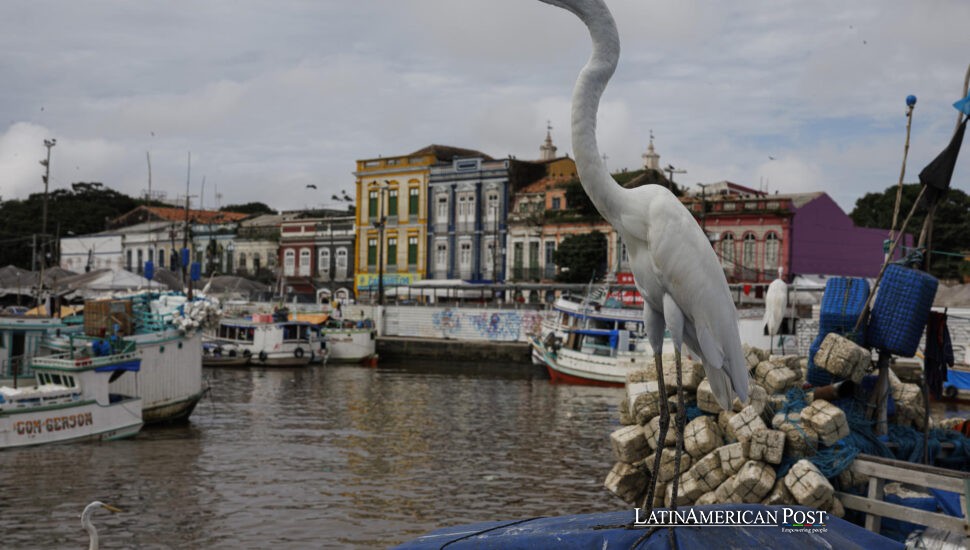Brazil Races to Ready Belém for Climate Summit as Locals Wait

In Belém, the Amazonian city hosting this November’s global climate talks, frenzied construction and overhauled infrastructure stir both anxiety and optimism. Amid half-finished roads and rising venues, residents see potential benefits yet brace for the chaos of a massive event.
The City’s Transformation
Across Belém, bulldozers rumble, and pneumatic drills echo through sweltering afternoons. The city of 2.5 million faces a steep deadline to complete promised upgrades before the UN Climate Change Conference (COP30). Eager to accommodate 50,000 expected visitors, local authorities are rushing to ensure last-mile tasks—like a “blue zone” for official negotiations—don’t fall behind. Situated next to a former airstrip soon to become a sprawling urban park, the construction site remains a dusty field. “We must level the land by the end of May, then the UN steps in,” a local worker told EFE, mixing Portuguese with occasional English references to specialized climate terms.
Regional Infrastructure Secretary Adler Silveira, speaking to EFE, insists everything remains “within schedule” but concedes that rainy season downpours have “slowed momentum.” Beyond the critical meeting spaces, citywide projects abound: expansions to sewage networks, construction of additional housing for visiting delegates, and restoration of Belém’s 19th-century municipal market. Planners state the changes will improve areas that need help. Many people who live there complain about the loud sounds and spread of trash, and the problems they face each day.
Residents Juggle Hope and Frustration
Locals are paying the price for these breakneck works, sometimes losing customers or enduring water shutoffs without prior notice. On a busy downtown street, hairstylist Mel Costa describes how her salon, reliant on a precarious septic tank, constantly faces odor issues. Now that pipes for a new sewer system rattle outside her doors, she’s torn between momentary chaos and the promise of easier plumbing down the line. “The city is rushing last-minute, so it’s chaotic,” she told EFE with a light laugh. But come November, if her building is hooked to proper sewage, it could be a transformative gain.
Merchants at the iconic 19th-century market share similar feelings. Forced to move their stalls during renovations, many note a small but tangible rise in tourists since Belém was named COP host. They anticipate more foot traffic when the event begins, and some vendors have begun stocking novelty items to lure curious outsiders. One stall owner, Isabel Barbosa, showcased new herbal concoctions and even a neon-green fragrance dubbed “Llama gringo.” She works nonstop, hoping the improved infrastructure endures long after delegates depart.
Stakes for a Global Event
The government has pledged over 4.5 billion reais (about 790 million dollars) to prepare Belém for the climate summit. Officials tout these projects as legacy investments, tackling fundamental needs that have lingered for decades. Yet the main question remains: will the hurried pace produce quality results? For an event shining the world’s spotlight on environmental stewardship, ironically, the city’s short-notice scramble runs contrary to the smooth transitions usually seen in established conference hubs. Meanwhile, local shops brace for congested streets, hotel owners rush to handle additional reservations, and thousands of daily commuters navigate detours through half-paved roads.
Many expect sustainable development will arise. Belém, located by rivers and rainforests, intends to feature the Amazon as central to climate solutions. But the city has daily problems. Sanitation is inconsistent. Roads are damaged. Poverty is common. These issues illustrate the region’s difficulties. One environmental advocate asserted, “We should demonstrate to the international community our ability to direct climate action. We desire quick actions to develop local areas.” The question persists: will this rushed behavior produce a favorable, enduring perception or fade after influential people depart?
Also Read: Latin America Sees Military Budgets Boom Despite Tensions
Before November, Belém’s sidewalks could vibrate because of drilling, and vendors could relocate booths. For people such as Costa, a positive future happens if the city undergoes real change. She dreams of no more septic tank emergencies and no more half-treated waste polluting the nearby river. “It’s difficult now, but I’ll forgive the hassle if it means comfort tomorrow,” she confessed. So, despite the dust clouds and roadblocks, a cautious optimism lingers in Belém’s tropical air—anticipation that once the climate summit closes, the city will emerge stronger, more modern, and prouder to greet the world.





